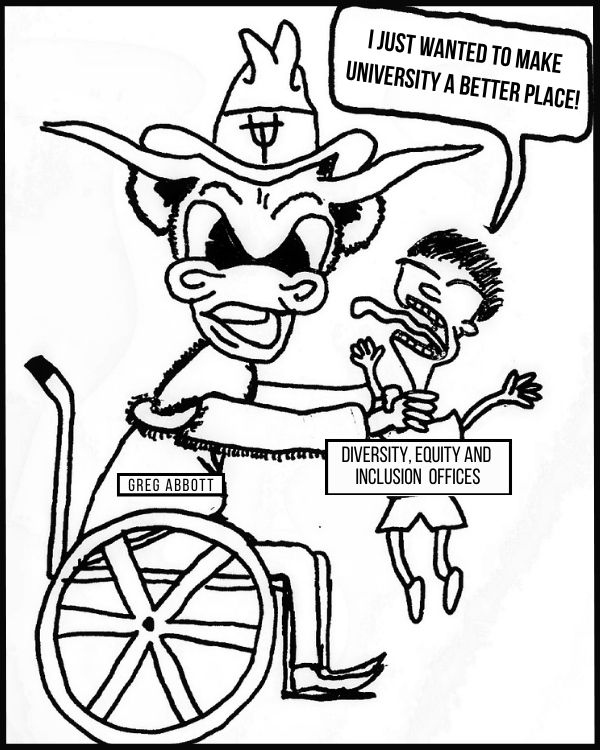On Tuesday, Nov. 8, Hillary Clinton failed in her presidency bid, and as is tradition, the Democratic Party’s supporters, leadership, and media surrogates are searching for anything and anyone to blame. They’ve chosen a familiar target: third parties.
In 2000, the story goes, Green Party candidate Ralph Nader’s 97,000 votes in Florida cost Al Gore the presidency as Gore lost Florida, and thus the Electoral College, by just 537 votes.
No, it wasn’t the voter suppression efforts, the purging of black voters from the voter rolls, the shenanigans of the Florida Republican machine, the party-line Supreme Court decision, the 200,000 registered Florida Democrats who voted for Bush, the anti-democratic Electoral College, Al Gore’s inability to carry his home state, or even the millions of Americans voting for Bush—no, it was the fault of lifelong consumer advocate Ralph Nader and his 97,000 “privileged” idealists.
Now it’s 2016, and the dastardly Greens have done it again, but this time they have help from the Libertarian Party. The two outsider candidates, Libertarian Gary Johnson and Green Party nominee Jill Stein, stole votes from Hillary Clinton, which allowed Donald Trump to win.
The only problem with this narrative is that it’s not based in any sort of reality. The combined vote of the two third parties exceeds the margin between Clinton and Trump in some states (and in some, it doesn’t), but the math only works if you assume that every single vote for Stein and Johnson would have gone to Clinton. This isn’t the case, and there’s plenty of proof.
The CBS News exit poll asked Stein and Johnson voters for who they would vote if only Clinton and Trump were on the ballot. The responses were almost equal, with 15 percent voting Trump, 25 percent voting Clinton, and about 60 percent staying home for both groups of supporters. I am skeptical that Johnson supporters would be more likely to support Clinton than Trump because they do not align ideologically, but I will give the benefit of the doubt for two reasons: this election is unlike others in many ways, and it’s possible that ideology isn’t as important in this funhouse-mirror of a democracy in which we live.
This election came down to six swing states won by Trump: Florida, Ohio, North Carolina, Pennsylvania, Wisconsin, and Michigan (at the time of this writing, Michigan was at 96 percent of votes counted, yet had not been called; the other 5 states were at 95-99 percent but had been officially called for Trump). If Clinton wins any three of those states, she wins the presidency.
In Florida, Clinton lost by approximately 130,000 votes, and Johnson and Stein combined for 270,000 votes. Subtracting 10 percent of these votes (27,000) – the 25 percent that would have gone to Clinton minus the 15 percent that would’ve gone to Trump – from the margin of victory results in a new margin of victory of 103,000. Florida still very clearly goes to Trump.
In North Carolina, Trump won by 180,000 votes. Johnson received 130,000 votes (Stein was not allowed on the ballot due to the states stringent and anti-democratic third-party ballot rules), which reduces to 13,000 additional votes for Clinton, leaving the margin of victory at 167,000.
In Pennsylvania, Clinton lost by just 68,000 votes. Johnson and Stein received nearly 200,000 votes. That results in a net gain of 20,000 votes for Clinton, and the margin remains in Trump’s favor, at 48,000.
In Ohio, Clinton lost by a whopping 455,000 votes. The Johnson/Stein total of 143,000, reduced to 14,300, barely makes a dent in that margin.
In Wisconsin, Trump won by a mere 27,000 votes. Johnson and Stein combined for 137,000 votes, 10 percent of which is 13,700, which cuts the margin in half to 13,300 but leaves Trump still solidly on top.
Finally, in Michigan, the margin is currently 12,000 votes. Johnson and Stein received 224,000 votes. Taking the 10 percent (22,400) and applying it to the margin changes Michigan to a victory for Clinton.
Without third parties impeding her victory in Michigan, Clinton would have won 248 electoral votes, and Trump would still have 290. Trump would have won the presidency and the Democrats would be looking for someone else to bear the blame.
This scenario is not what liberals have in mind when they angrily crank out think pieces about the stupidity and arrogance of third parties. They imagine that every counted third party vote would go to their candidate—although I’m not sure how this would happen practically. Banning anything other than Democrats and Republicans from running for president? Surely the brazenness of dropping even the façade of a truly representative democracy would affect votes too.
The fact is that Democrats actually have no intention of ending this third-party conflict. If they did, they would’ve made at least a half-hearted effort to enact ranked-choice voting; this would allow millions of people to vote for a third party while ensuring no votes for the Democrat are “lost.” They know that the Green Party does not actually cost them elections, and that the most successful third-party candidates in recent history have been on the right-wing.
At worst, third-party votes are harmless to the Democrats, and, at best, they help their chances in the aggregate. Removal of this electoral excuse would mean that Democrats would have to examine what failures in the party structure and ideology led to this loss. This means that Democrats would have to change, and they have no intention of doing so.
Keeping “third-party spoilers” as an imagined problem also allows Democrats to engage in one of their favorite pastimes: punching left. The Democratic Party’s priorities can be seen in its reactions to electoral loss—prominent liberals are already lining up to say they’ll work with President Trump, and that we should give him a chance to lead. The ostensibly leftist major party is cozying up to fascists and blaming anyone further left than Henry Kissinger for their loss.
The popular discourse from liberals is that third-party voters are displaying privilege in voting for principles over pragmatism, which means they must have more privilege than women and the Latinx, Muslim, black, and LGBTQ communities that would suffer the most under a Trump presidency. This is consistent with the center-left’s bastardization of the concept of privilege from a complex and nuanced analysis of power structures and perspective into a scorecard that determines one’s credibility.
This argument is nonsense. Analyses of voting patterns based on demographics and identity politics alone always break down when confronted with even just a few examples that defy the narrative. Proponents of the “Bernie Bro” idea consistently ignored the fact that Bernie Sanders’ base was young women, or worse, suggested these women supported democratic socialism to impress men in their lives—but again, actual voting trends don’t match up with the privilege argument.
A majority (over 60 percent in some polls) of Green voters are women; Green voters are more likely to be non-white than white, to be unemployed than full employed, and to rent instead of own their own homeless likely to have a college degree than the general population. The Green Party also has more support from Muslim-Americans compared to the general electorate, as did Bernie Sanders, possibly due to the bipartisan effort over the last 15 years to kill Muslims abroad. Johnson supporters are predominantly white men, which is expected from a right-wing party, although Latino men support him at a higher number than expected, according to a PEW survey from June.
Hillary Clinton lost this election because this country has racism, misogyny, and oppression built into its foundations. Clinton lost because the Democrats have spent their years in power chasing neoliberal policies rather than uplifting the most oppressed groups and stomping out hate groups.
Clinton lost because she repeatedly suggested that Trump’s white nationalism was an anomaly, not standard operating procedure of the Republican Party. Clinton lost because Republicans, with tacit permission from national Democrats, rolled back the Voting Rights Act in several states, disenfranchising primarily black voters. Clinton lost because the DNC nominated one of the least-liked politicians in the country over the most popular politician in the country. Clinton lost because she and the Democrats failed to inspire voters with their messages of “American is already great” and “at least we’re not Trump.” Clinton lost because she received 12 million fewer votes than Obama in 2008, despite a larger voting age population. Clinton lost because she took the votes of the Rust Belt and the left wing for granted without trying to appeal to them in good faith. Clinton lost because her campaign expected people of color to turn out at the levels they did for Obama despite the average black family being in a worse position now than in 2008, massive amounts of deportations, and the campaign offering no significant new policies to help people of color. Clinton lost because the Electoral College is a blight on direct democracy.
Clinton did not lose because of third-party voters, pure and simple. Arguing so is sycophantic apologia for the ineptitude of the Democratic Party that erroneously pins the blame on some of the least powerful players in American politics. Those whose praxis is siding with power over voters are nothing more than propagandists for the status quo.

















